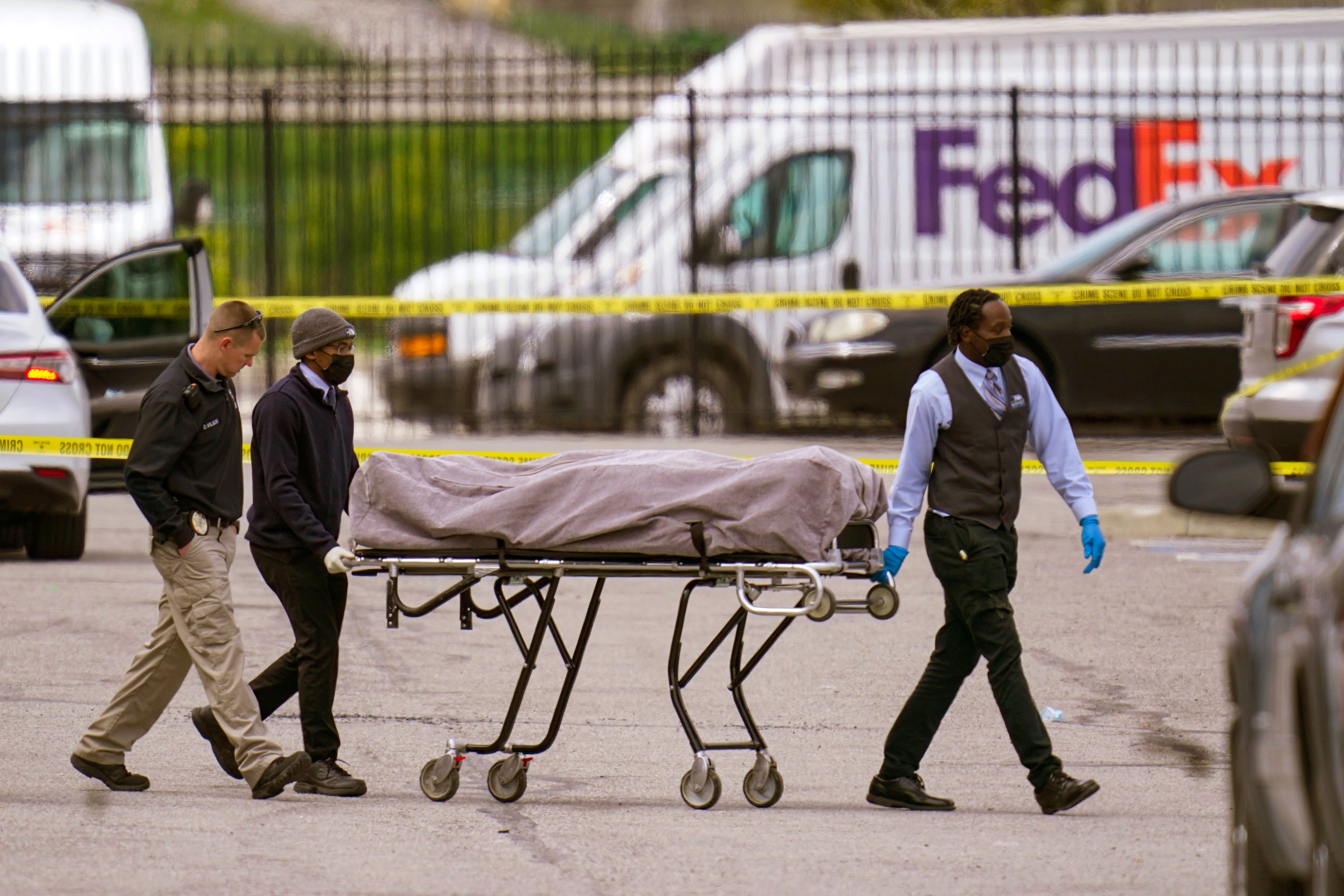‘I don’t know a single person that thinks America is psychologically fine’ – why the US is no closer to solving its gun problem
Though the United States was largely locked down by the coronavirus pandemic, 2020 was still the deadliest year for gun violence in the country in two decades, writes Borzou Daragahi


America’s obsession with guns has long been seen as a curiosity around the world. From gun-toting cowboys to mafiosi in cheap suits with tommy guns and more contemporary gangsters in baseball caps driving low-riding sedans, gunslingers have populated the movies and music that define the American brand. “Because I’m a gangsta having fun,” the late rap artist Eazy-E sang in 1988, “Never leave the pad without packing a gun.”
But in recent years the multidimensional disaster that guns are inflicting on the country has also become apparent to the world. The 15 April mass shooting at the Indianapolis FedEx facility was at least the sixth large-scale American gun massacre in five weeks.
Though the United States was largely locked down by the coronavirus pandemic, 2020 was still the deadliest year for gun violence in the country in two decades. According to the Gun Violence Archive, there have been at least 147 mass shootings in the US since 1 January, compared to 85 during the same period last year.
The video footage that emerged last week of a Chicago cop shooting dead a 13-year-old boy whose hands were raised as commanded showed the wrenching reality of Hollywood’s cops-and-robbers fantasies.
According to polling data, perceptions of the US abroad have plummeted in recent years, hitting an all-time low during the years of Donald Trump’s presidency. With sensational news reports of American violence and travel advisories warning foreign visitors of potential gun-related mayhem, those who follow the news in America see it as a relatively dangerous country. They are disgusted at the “active shooter drills” children at American schools undertake to prepare for the day when a massacre might take place.
“The widespread use of weapons in America has become a serious problem,” Iran’s Supreme Leader Ali Khamenei said in a 2017 speech. “But the government does not dare to make the use of firearms illegal because of the dominance of the mafia and American arms companies.”
Reports of gun massacres in the US have made world news for decades, at least since two teenagers armed with assault rifles stormed Colorado’s Columbine High School in 1999 and killed 12 people. But the scenes of hundreds of armed “militiamen” marching through American cities gave many abroad a fresh jolt. That’s the kind of thing that happens in places like Syria and Iraq. If the gunplay taking place in the US was happening in a Latin American, African, or Middle Eastern country, American journalists would be describing it as a failed state.
“That’s like, ‘Wow,’” one television producer who has lived in the US and Europe tells me, describing the reaction of those abroad to the spectacle of surging American far-right armed groups. “The reaction is like, ‘Okay, that’s not going in the right direction.’”
A brief review of how world news outlets analyse and assess American gun violence and culture showed that most television stations and newspapers are utterly baffled, and often turn to American or American-based scholars and journalists to explain why America is able to tolerate being a country where there are nearly 400 million privately owned firearms, and where atrocities unfold almost weekly.
“People in the rest of the world think the Americans are crazy,” says Pablo Pardo, the Washington bureau chief of Spain’s El Mundo. Pardo once went to a gun fair on the outskirts of the US capital to show how easy it was for him to buy a shotgun. He was aghast. “I was able to do it without showing anything,” he says. “Buying a cell phone is more complicated. Opening a bank account is much more difficult.”
Few observers abroad understand America’s refusal to change laws to enforce gun control. The UK, following the August 1987 rampage by a gunman in Hungerford that left 16 people dead, severely tightened gun laws, outlawing semiautomatic weapons and limiting sales of some types of shotgun. A decade later, when a man killed 16 children and their teacher at a Scottish primary school, even tighter gun laws were imposed. Tens of thousands of weapons were collected from their owners.
Following a pair of killings in Australia in 1996, the conservative government restricted the ownership of automatic and semiautomatic weapons, buying back 650,000 firearms. New Zealand changed its gun laws within weeks after massacres at two mosques, defying a relatively powerful gun lobby. Canada, too, tightened gun laws after a 2020 massacre in Nova Scotia.
When Americans cite the second amendment, the constitutional provision that allows the right to bear arms, people abroad just smirk, as if laws, whether in the US or elsewhere, can’t be bent to satisfy political demands.
“The general view among people I know is, ‘Holy s**t, what’s wrong with America?’” says Cinar Kiper, 37, an Istanbul-based writer who has lived in North America. “That’s the view of Turks, Americans, Canadians, Europeans, Africans I know. I don’t know a single person that thinks America is psychologically fine.”


Join our commenting forum
Join thought-provoking conversations, follow other Independent readers and see their replies
Comments